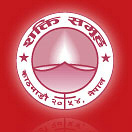Research
Ongoing Research
some intro text here
An Action Research project by Shakti Samuha, Nepal.
An Action Research project by Shakti Samuha, Nepal.
Following the research training undertaken as part of their partnership with the research project, and with on-going consultation with the research team, Shakti Samuha has designed an action-research project ‘Access to Justice? Social Impacts on Women after Filing Legal Cases against Traffickers in Post-trafficking Situations’, which is currently underway. It is anticipated that this project will improve trafficked women’s access to justice when taking traffickers to court.
Project Summary:
Objectives
The overall objective of the study is to understand social impacts on women after filing legal cases against traffickers in post-trafficking situations.
This research project is part of research capacity building of Shakti Samuha leadership.
Background
To date there has been no study to understand the possible social impacts on women who approach legal services. In the current context gaps related to legal cases include:
- Social stigma
- Policies not properly implemented
- Political protection to traffickers
- Corruption
- No compensation
- Social rejection
- Threats from traffickers
The key focus of this research is the social impact of the legal process. The cases filed in court against traffickers are very few. What are women’s experiences?
This study is expected to be a landmark, led by trafficked women themselves to understand the consequences of legal process in their own lives. It aims to influence the current policy context, to make it friendlier and enable trafficking survivors to live dignified lives. It will help raise awareness and support advocacy on legal provisions on behalf of trafficking survivors.
Research Methodology
Shakti Samuha’s desire to create useful knowledge grounded in the actual experiences of trafficked women and narrated from their own perspectives is methodologically key to this research. In-depth interviewing methods will be applied. Case studies of trafficking survivors who have gone through legal cases will be studied alongside related literature. The sample will be taken from trafficked women who have approached legal services at least once and who consent to participate. Shakti Samuha, being survivors’ organization and supporting women to access legal services has unique access to a population for this research. In-depth interviews will be interactive and reflective, to encourage interviewees, as active participants in the process, to construct a sense of their own social context in which legal services are defined and implemented.
Leverhulme Trust Major Research Fellowship
Professor Diane Richardson has recently been awarded a prestigious Leverhulme Trust Major Research Fellowship entitled 'Transforming Citizenship: Sexuality, Gender and Citizenship Struggles'.
Starting in September 2013, the Fellowship will run for two years and will develop the themes that arose out of the sexuality, equality and local governance project, as well as a more recent ESRC funded project on women and citizenship post-trafficking in Nepal.
Book Project
A research monograph from the project is currently in preparation: The Sexual Politics of Poverty: Making Lives Post-trafficking. This book aims to engage a wide audience interested in development, citizenship, livelihoods and sexuality, both in terms of conceptual and policy debates as they relate to challenges generated by post-trafficking scenarios. The analysis is based on a methodological approach that seeks to prioritise the voices of returnee trafficked women in the co-production of knowledge about anti-trafficking interventions.
July 2013
The Sexual Politics of Poverty: Making Lives Post-trafficking
Nina Laurie, Diane Richardson, Meena Poudel and Janet Townsend.
Almost every country in the world is affected by trafficking. It is a global phenomenon and a priority for many governments. Despite this, many aspects of trafficking remain poorly understood. While much work examines the process and flows of trafficking, very little research has focused on post-trafficking situations. This represents a significant gap in our understanding, particularly of women’s experiences as making new lives post-trafficking entails particular development challenges for them. These challenges are seldom prioritised in development planning, reflecting the fact that most work on trafficking addresses its causes and characteristics, feeding into policy frameworks targeting the 'rescue' of those experiencing diverse trafficking situations. Post-trafficking starts when these scenarios end.
Post-trafficking describes the processes and practices associated with returning ‘home’ from trafficking situations, for whatever purposes, whether this involves being trafficked internally in one’s own country or elsewhere. The negative circumstances many women face on their return ‘home’ from trafficking situations are severe challenges to them in making new lives and forging sustainable livelihoods. This book is based on research that brings the experiences of post-trafficked women centre stage in analyses of trafficking. This is important as not only are the issues faced by returnee women largely ignored globally, but also the stigmatisation and poverty which they typically encounter means they often have little voice in policy making on important issues such as mobility, citizenship, livelihoods and sexuality that directly affect their lives.
In this respect, the book aims to promote dialogue on to how to make women’s return post-trafficking safe and how to foster a development policy environment that responds to their demands for rights.
- Introduction
- Conceptualising post-trafficking
- Stigma, Honour and Shame
- Borders, Boundaries and Bodies
- Citizenship and Livelihoods
- Professionalisation and Activism
- (Re) Constituting Identities
- Conclusion: the Sexual Politics of Poverty




